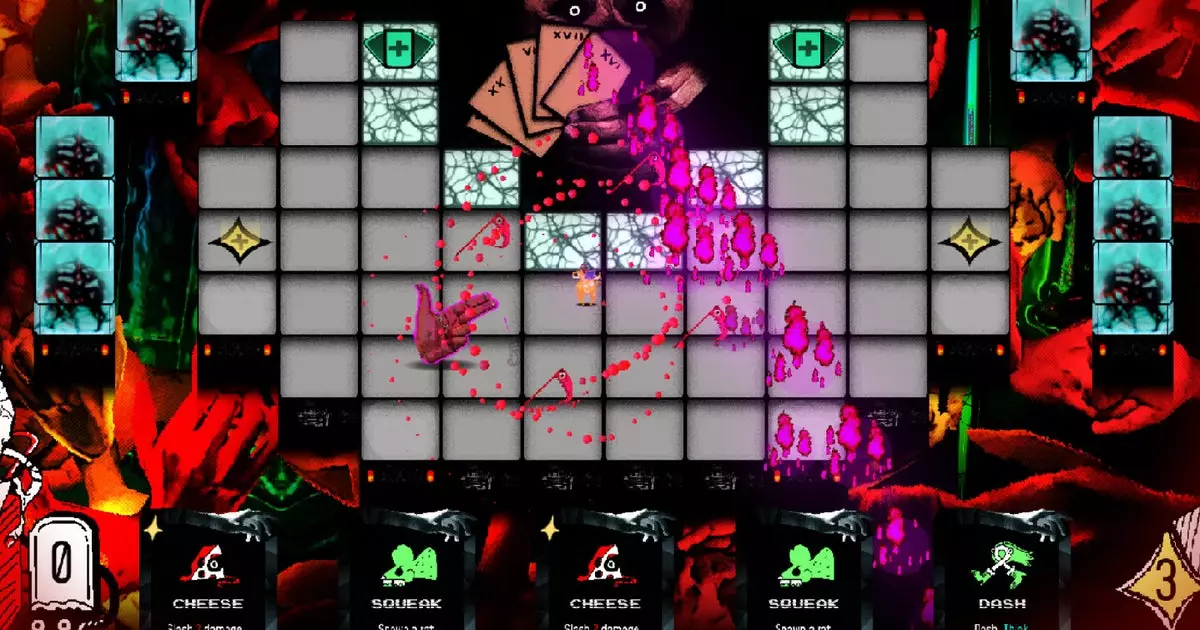LYMBUS: Incomplete Edition, the latest offering from Happy Accident Studios, ushers players into a bizarre and frenetic gameplay experience that combines elements of roguelike and bullet hell genres. With roots tracing back to their previous game, Anomalytics, which intriguingly fused shooting mechanics with mathematical challenges, this new title raises the stakes even further. What sets LYMBUS apart is its unique premise, where players are thrust into a surreal digital landscape following a catastrophic event that has plunged humanity into a comatose state.
In this intriguing narrative, players assume the role of a figure diving into the depths of the collective unconscious to recover lost memories. The setting evokes a sense of both urgency and existential exploration, as it taps into the archetypal conflict between human awareness and the chaos of an endless digital frontier. The game’s structure prompts players to question not only their immediate strategy but also the broader implications of their quest within the game’s universe.
At the heart of LYMBUS lies a distinct card-playing mechanic that integrates seamlessly with fast-paced combat. Players are required to navigate through intense battles armed with a deck of memory cards, which govern their actions—shooting, dodging, and slashing, among others. Unlike traditional turn-based systems, LYMBUS demands agility and quick thinking, positioning players in scenarios where every decision could mean the difference between survival and defeat. The resource management component adds an additional layer of depth, compelling players to prioritize their card plays and adapt to the real-time pressures of the battlefield.
This structure inherently challenges players to strike a balance between tactical planning and frantic action. Initially, there might be a temptation to overthink strategies, yet it quickly becomes evident that LYMBUS thrives on a dynamic, unpredictable environment. Players may find that the intensity of bullet hell battles demands an almost instinctual response rather than a meticulously crafted plan.
The narrative crafted within LYMBUS is as engrossing as its gameplay mechanics. Set against the backdrop of a dystopian future where neuroscientific failures have led to widespread amnesia, the game cleverly plays on themes of identity and memory. Each memory card retrieved serves not only as a gameplay tool but also as a narrative device, unveiling snippets of the world’s story as players progress.
This blending of storytelling and gameplay elevates LYMBUS from merely a series of interactions to an experience that invites players to ponder deeper questions about reality and consciousness. The game doesn’t shy away from humor either; the tongue-in-cheek references and self-aware commentary on the gaming industry add a layer of engagement that resonates with a savvy player base.
As LYMBUS: Incomplete Edition prepares for its release later this year, the anticipation swells among the gaming community. It promises not just a game but an experience—an intricate dance of strategy, chaos, and narrative exploration. Players are encouraged to embrace the frantic energy and dive headfirst into this peculiar adventure. With its refreshingly quirky approach, LYMBUS is poised to leave an indelible mark on the roguelike genre, boldly declaring that gaming can truly be an expression of the bizarre and the beautiful.


Leave a Reply